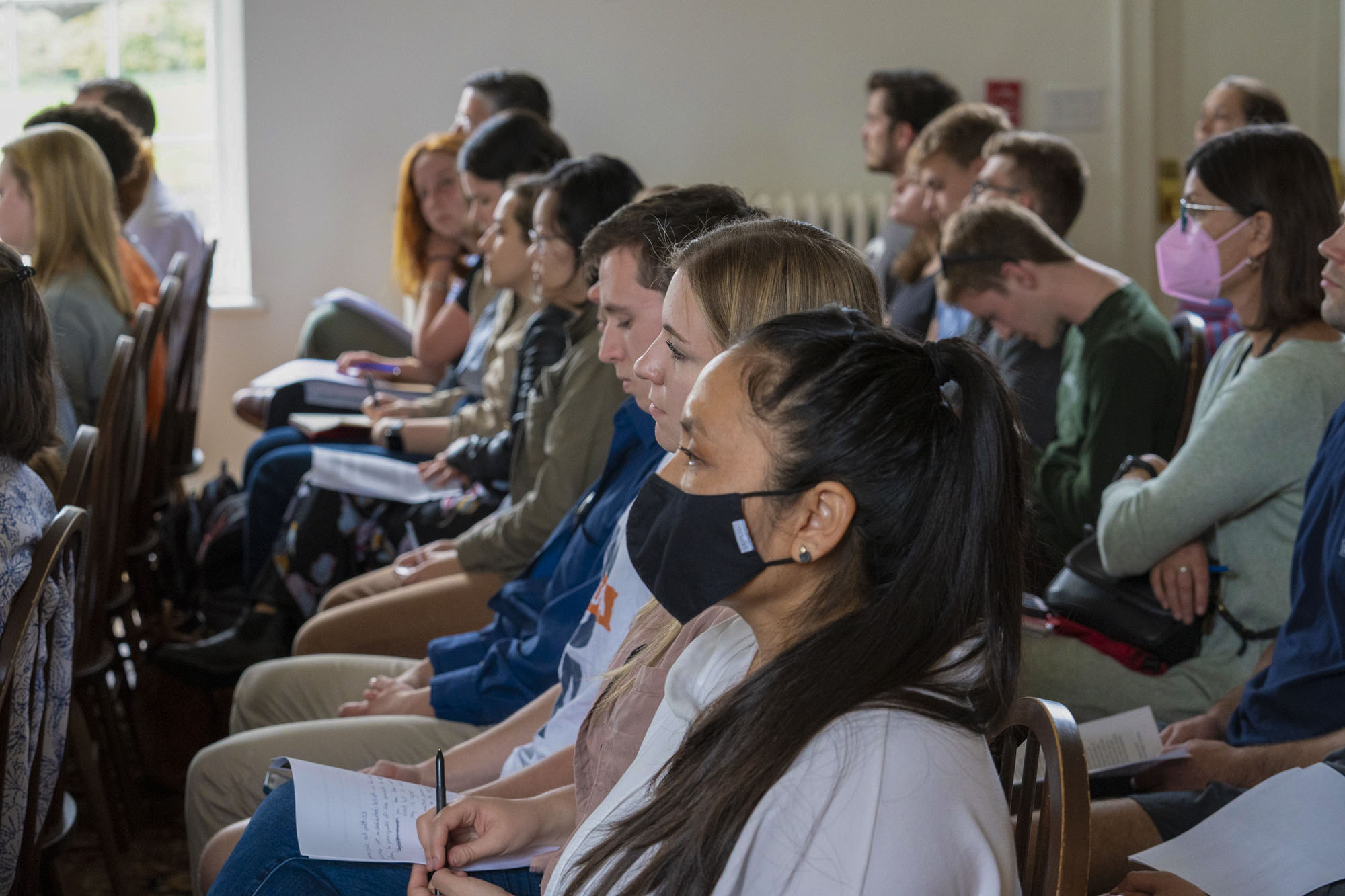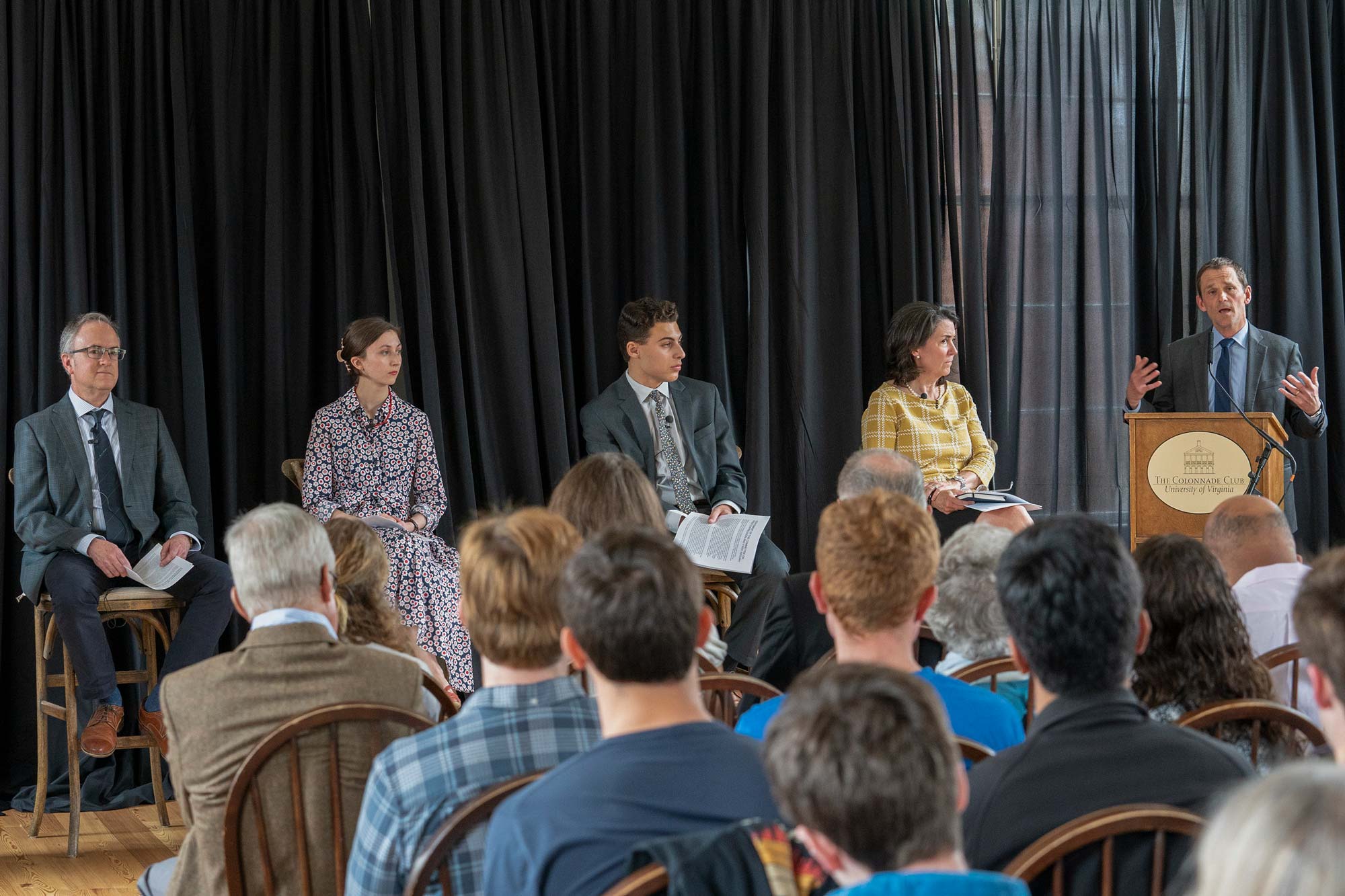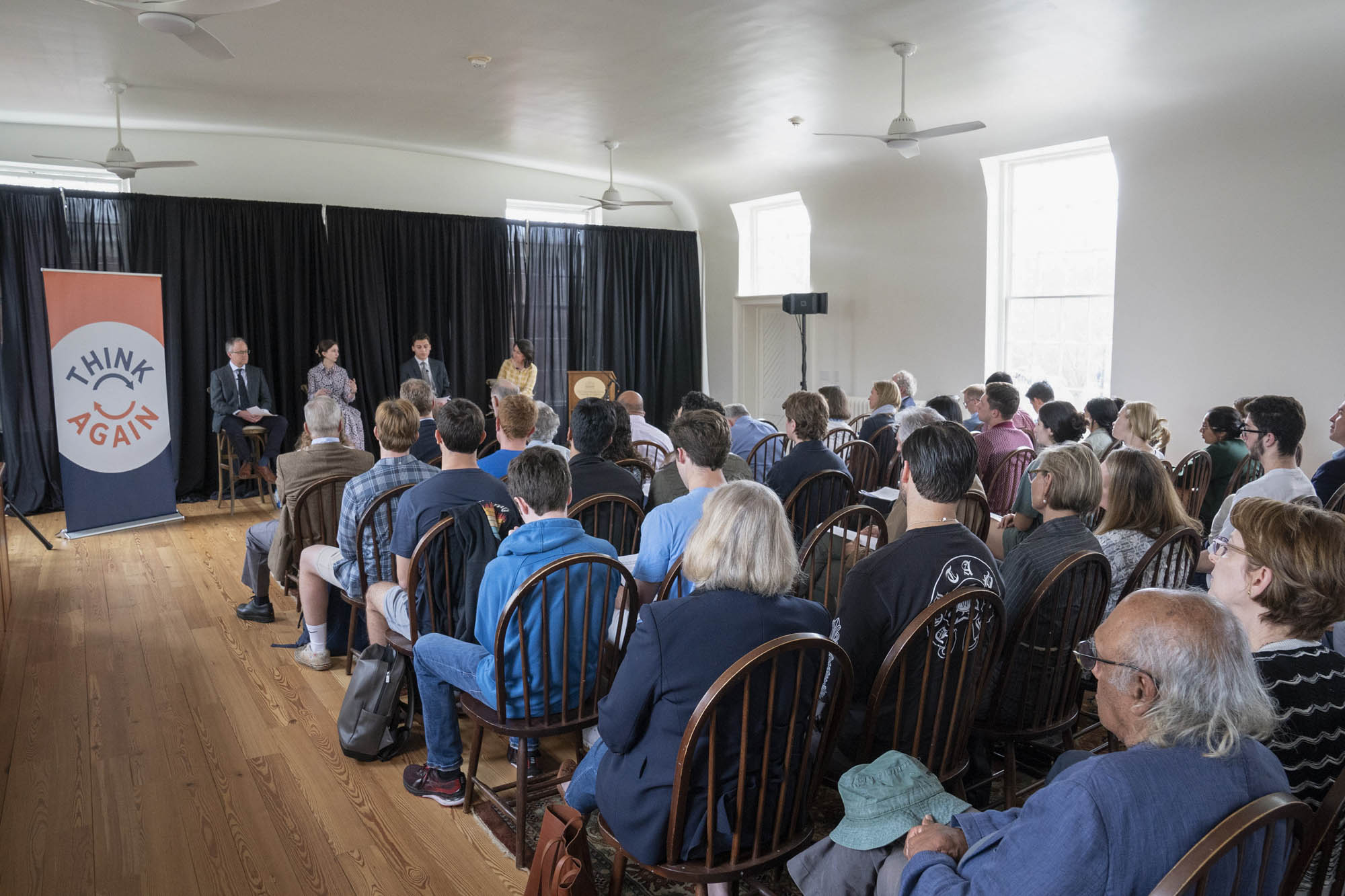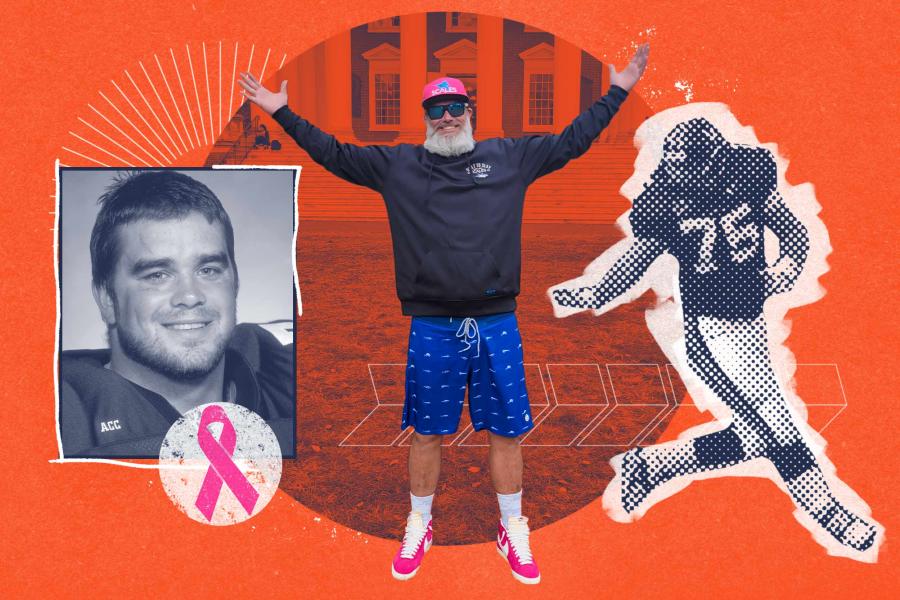University of Virginia President Jim Ryan on Wednesday provided a peek into his email inbox to drive home his main point about how to view the right of free speech on Grounds.
Leading off an event – titled “What Should We Do About Free Speech at UVA?” – inside the Hotel E Garden Room on the West Range, Ryan said he believes deeply that the protection of free speech should be about principle and not about politics.
The stance was then punctuated by two recent examples – the fall 2020 debate over a controversial sign on a Lawn resident’s door, and the backlash following last month’s editorial by The Cavalier Daily student newspaper that argued former Vice President Mike Pence, who is scheduled to be a featured speaker at an upcoming Young Americans for Freedom event in Old Cabell Hall, is “not entitled to a platform at the University.”
Ryan said, based on his email traffic, there’s an overlap between those who thought the Lawn door sign (which included a profanity directed at the University) should be taken down and those who are outraged by the opposition to Pence’s pending visit, and, conversely, an overlap between those who felt the sign deserved to stay up and those who feel Pence shouldn’t have any kind of UVA platform.
“I have a sense that what is driving some of this unusual overlap is politics, and not a dedication to free speech,” Ryan said. “It is not a principled approach to free speech to say, ‘I believe in free speech, as long as it doesn’t offend me.’
“The First Amendment protects offensive speech precisely because the alternative would be someone like me or the University would have to be the arbiter of what’s offensive and what’s not.
“So a principled approach, and one of the reasons why the First Amendment looks really poorly on content-based restrictions on speech or viewpoint-based restrictions on speech, is because it would be an endless parade of judgments about what’s offensive and what’s not. And that is inimical to robust protections for free speech.”

Audience members gather in Hotel E for the forum focusing on free speech, a topic that has generated spirited debate in recent months on Grounds.
Ryan’s suggestion? Adhere to the principles of free speech that suggest all ideas should be voiced.
Then, he said, “We can scrutinize them, and we can decide what we agree with and what we disagree with.”
Wednesday’s event, which was sponsored by the Think Again @ UVA initiative, was moderated by politics professor Mary Kate Cary and included student panelists Emma Camp and Will Mallas, plus politics professor John Owen.
The forum was presented in front of roughly 100 spectators, a mix of students, professors, alumni and followers of the University. It was intended to continue the conversation sparked last June when UVA’s Board of Visitors endorsed a statement unequivocally affirming the freedom of expression and inquiry on Grounds.
Cary asked each of the panelists for suggestions on improvement to free speech at UVA.
Camp is a fourth-year student and member of the Jefferson Literary and Debating Society executive council. She recently wrote a much-discussed New York Times op-ed.











